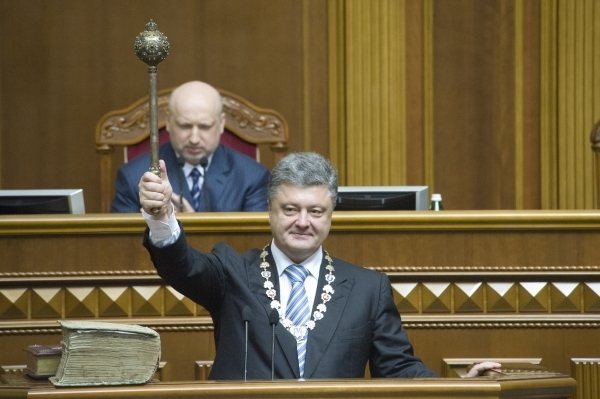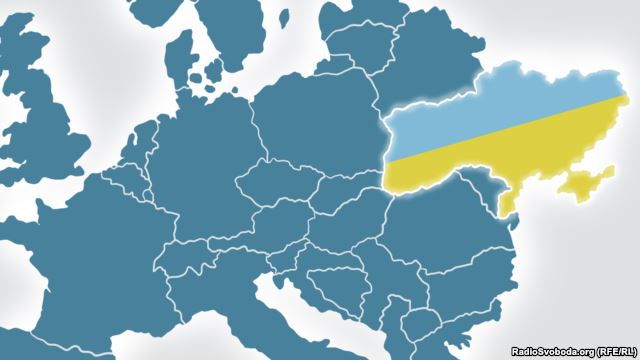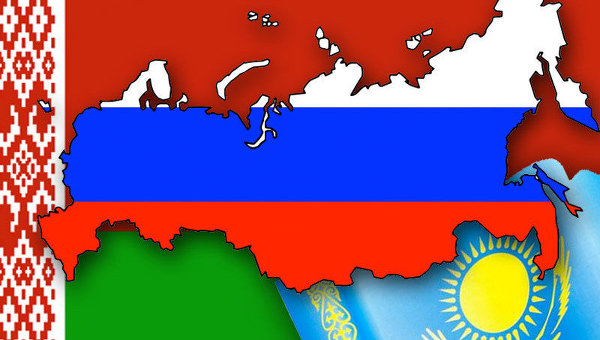And which of his promises remained only on paper
Today marks exactly a hundred days since Petro Poroshenko officially assumed the office of the President of Ukraine. This period in political work is considered to be adaptive, however, it is already possible to evaluate the primary results and draw first conclusions regarding the actions of the new Head of State.
Experts who were interviewed by Forbes remind that the fifth President of Ukraine assumed office during a de-facto state of war. Therefore, when discussing the extent to which Poroshenko is able to keep his promises, first and foremost we have to consider defense.
“Taking into account the current situation in Ukraine, it can be said that Petro Poroshenko is managing his obligations quite well in the given period. It is easy to explain it with a simple example: having achieved 54% support, he ‘married’ the country in a way. And first and foremost he should think of a way to defend it. When the ATO is over, he will have to ‘provide for the family.’ The entire 100-day period was a process of defense,” thinks Denys Bohush, President of Bohush Communication agency.
According to expert opinion, in the past 100 days the actions of the new President turned out to be more resultative on the international arena than in solving domestic issues. “Everyone noticed that his intellect and ability to think his moves through may even outsmart Putin. His policies are so effective on the international arena that the UN, the NATO and the EU have approved such harsh measures [against Russia] in this period, which they had never done against a certain individual country. Poroshenko managed it, as he was able to carry out effective international policies,” Bohush notes.
Director of the Institute of Ukrainian Politics Kost Bondarenko confirms this: “One of the most important instances is that Poroshenko decided to meet with Putin, having stepped over many ambitions. He came [to power] when war was already raging in Donbas, he promised to stop it. This is the main thing he had to work on.”
Among the failed electoral promises, experts note the de-facto failure of constitutional reform and electoral reform, the lack of real European integration. Human resource policies in the higher echelons of the government and measures to save the economy can also be considered a failure.
“The war situation continues, and we need resources from the economy of the military type in order to provide for the army’s defense capabilities,” concluded former Ukrainian Minister for Economics, president of the Market Reform Center Volodymyr Lanovoy in an interview with Forbes.
Meanwhile analysts also point towards erroneous messages that sounded in Petro Poroshenko’s rhetoric at the start of his presidency. As such, the gas issue was seen exclusively from the business component viewpoint, and not as Russia’s strategic weapon in the conflict with Ukraine. “Poroshenko, when talking about the gas agreement, viewed them in the business axis system. The following events showed that in reality gas should be viewed in the military axis plane,” emphasized president of Strategy XXI Globalist Center Mykhaylo Honchar to Forbes
.
According to him, as soon as combat deescalated, escalation increased on the gas front. “Those who put this point into the President’s electoral promises did not fully comprehend what hybrid war is,” the expert thinks.
It is obvious that the war in Donbas made the Ukrainian government reexamine their priorities. In light of this, many of Petro Poroshenko’s promises that were made before the elections and immediately after his inauguration now seem irrelevant. “He did not think that the economy should become more militaristic. He wanted to survive in a civilian economy, but it didn't work,” Lanovoy says.
Forbes decided to analyze the key promises made by the fifth President of Ukraine when he assumed his post, and the degree to which these promises were kept throughout the past 100 days.
Hold early elections to the Parliament
Stage of execution: partial
According to the presidential order of August 25, the VII Parliament was disbanded. On the same day the date of the early elections to the Verkhovna Rada was named as well: October 26, 2014. On September 8 the Cabinet of Ministers gave 957,8 million UAH for their execution.
Experts interviewed by Forbes do not hasten to consider this promise executed: first, the electoral system, according to which the early elections are to be held, remains unchanged. The transition to the proportionate system with open lists never happened. “To be honest, it would have been better if the elections did not happen,” explains Volodymyr Lanovoy. “Especially according to the old system and with the involvement of all the non-lustrated people. This will lead to a bad situation from the viewpoint of reforms and economic order in the country. I think that this demand has not been met yet in the way society needs.”
The elections themselves are on the brink of disruption. The reason is the possibility of the declaration of martial law in the country, during which elections cannot be held. Chairman of the Verkhovna Rada Oleksandr Turchynov thinks this is possible should the peace plan fail.
Meanwhile, members of the Parliament told Forbes that in case of necessity, the martial law legislation can be ‘corrected.’ “In reality, the Parliament is ready to now vote for a law which would allow to declare martial law and hold the elections, just to win this war,” said member of the Parliament Lesya Orobets.
Make Russia pay for annexing Crimea
Stage of execution: none, plaints filed
Ukrainian Justice Minister Pavlo Petrenko stated that about a month ago the Ministry of Justice filed two plaints to the European Human Rights Court against the Russian Federation on behalf of Ukraine. One of them, on a sum of 1,2 trillion UAH, has to do with compensating the losses from the annex of Crimea. “This number is unlikely to be final, taking into account that the aforementioned plaint is being constantly updated and augmented,” the Justice Ministry noted. It is assumed that the court will make its decision no earlier than within a year’s time, as the investigation process will be followed by the examination of evidence and eyewitness accounts by the European Human Rights Court.
After the plaint was filed, it was dubbed ‘the sale of Crimea’: that is to way, if a positive decision is reached, after the payment of this sum Ukraine will no longer have a claim on the peninsula. Petro Poroshenko continues to insist that Ukraine will return Crimea by democratic means.
“The issue of Crimea, naturally, will be solved in the talks process between Russia and Ukraine. Territorial claims are solved first, later – the issues of economic cooperation. Crimea, I think, will be dual-subject territory, for example, like Ireland,” thinks Kost Bondarenko.
Make his first visit to Donbas
Stage of execution: executed
Petro Poroshenko made his first work visit as Head of State to Donbas on June 20. Back then, he accepted the rapport of General Viktor Muzhenko in the antiterrorist operation center regarding the end of the operation to establish a defense regime at the border. After this, the President gave the week-long ceasefire order to all Armed Forces departments, the National Guard, and the Border Service.
“The issue of territorial integrity is not subject to discussion,” the President stated confidently. During his first visit, he presented the servicemen and fighters of the National Guard with special equipment, and spoke about the peace plan to regulate the situation in the region.
However, this did not lead to deescalation of the conflict. Members of the illegal armed formations used the ‘week of silence’ to regroup and receive reinforcements from Russia. In the end, after the week was over, armed clashes resumed with more rigor.
On July 8, the President visited Sloviansk, where he stated that he was ready for talks regarding Donbas’ future with everyone who really represents the population of the region and who is ready for political dialogue.
The President paid his latest visit to the ATO zone on September 8. Poroshenko visited the Ilyich Mariupol Metallurgy Factory in Donetsk oblast. During a meeting with the citizens, he stated that the government intended to fight for Mariupol. Soon after, the President’s official Twitter page was updated with a new message: “We will not give our land to anyone!”
Alter ATO strategy, stop armed clashes in the East
Stage of execution: partial
The armed conflict in Donbas, which has been escalating for the past four weeks, started stagnating. “As of today, the situation has changed – they started killing people less. The fact is that this mass bloodbath ended,” concludes Denys Bohush. It was the result of peace talks held in Minsk on September 5. Then, representatives of Ukraine and self-proclaimed DNR and LNR, under OSCE observation, signed the Donbas ceasefire protocol.
Experts are not inclined to view this strategy and the peace talks in a positive light. Fire against Ukrainian positions continues, and the temporary ceasefire is already being taken advantage of by the Russian-terrorist army to maximally increase their military might. Dmytro Tymchuk, head of the Military and Political Resistance Center, states that Russian zenith air-defense missile complexes had already been spotted on the territory under the mercenaries’ control.
When speaking at the broad Cabinet of Ministers assembly on September 10, Petro Poroshenko stated that the government was doing everything possible to further defend the country. “We are now regrouping part of our Armed Forces, the National Guard, border servicemen, not to attack, but in order to provide the defense of our territory in a guaranteed and effective manner,” stated the President.
More power to the regions
Stage of execution: none
Real steps were not taken to decentralize the government. “The broadening of regional powers is, unfortunately, only empty words. There is no conception whatsoever,” Volodymyr Lanovoy analyzes the electoral promise.
As Forbes wrote earlier, the decentralization reform in Ukraine may lead to the improvement of the quality of government of state and financial streams. Experts consider the officials’ unwillingness to part with budget revenues that remain in the center to be one of the reasons why this reform is being delayed.
The government ordered the Ministry of Regions at the unscheduled Cabinet of Ministers session to hold consultations regarding decentralization amendments of the Constitution before October 1.
It is notable that while earlier the Russia government insisted on the necessity of federalization of Ukraine, yesterday the Russian Foreign Minister Sergey Lavrov stated that today Moscow does not see the difference between decentralization and federalization anymore, however it wants for Russians to be able to influence Ukraine’s foreign policy.
This week, the Parliament may examine the law of Ukraine ‘regarding temporary local government order in individual districts of Donetsk and Luhansk oblasts.’ But exerts assure that it has nothing to do with decentralization of the regions. “The special status for the given regions, which the President is resorting to, is the execution of the 5th point of the Minsk agreements,” Kost Bondarenko remind. President Poroshenko assured that spacial status will presume more economic and humanitarian rights for these regions and does not constitute a threat to territorial integrity and sovereignty of the country.
Resume work relations with Russia, hold effective talks regarding gas
Stage of execution: none
On August 26 in Minsk, during the Ukraine-EU-Eurasian Three (Belarus, Kazakhstan, Russia) talks, the first meeting between the President of Ukraine and Russia occurred. Their meeting happened behind doors that were closed to the press and lasted for about two hours. Experts note that since that moment ‘the ice has moved’ in the relations between the two Presidents. According to Kost Bondarenko, the key moment of the meeting was that Poroshenko decided to talk to Putin.
Nonetheless, the trilateral talks regarding Russian gas supplies to the EU through Ukraine, originally set for September 6, were postponed because of existing contradictions. “So far, we cannot say this point was executed. As of today, it has not been executed,” concludes Mykhaylo Honchar. Volodymyr Lanovoy agrees with him: “The effect has not been achieved. I think that Russia may promise us something but will still shot off the gas in order to create an unstable and explosive situation.”
“This issue cannot be solved by bilateral relations, the only way out is trilateral meetings,” concludes Honchar.
Rethink gas consumption strategies
Stage of execution: partial
“There are certain achievements here. Few issues can be solved within a hundred days, but the processes have been launched,” thinks Mykhaylo Honchar. The expert notes that the President’s part in this should not be overestimated, that the execution of this promise lies more within the competence of Vice Prime Minister Volodymyr Hroysman and the government in general.
A positive decision was the passing of the law regarding a state of emergency in Ukraine’s energy sector ‘Regarding a special period in the fuel-energy complex,” which Hroysman is responsible for. According to him, the gas deficit to carry out the heating season in Ukraine constitutes about 5 billion cubic meters. The result of the government’s decision can be analyzed after the heating season is over.
Volodymyr Lanovoy does not share his enthusiasm, as he does not believe in talks and agreements with Russia in gas issues.
Meanwhile Honchar emphasizes that there have been certain achievements in the issue of reversal. The small gas reversal from Slovakia, which presumes the possibility of physical delivery of up to 27 million cubic meters per day (10 billion per year), was launched on September 2. Ukraine plans to launch big reversal through Slovakia with a volume of up to 30 billion cubic meters per year.
“The launch of the small reverse from Slovakia is a result of joint efforts. What is important is the fact that the Slovakian direction has been unblocked, as there are perspectives of big reversal, which solves our gas import issues in general. Here, we can give a modestly positive evaluation,” concludes Mykhaylo Honchar.
Establish dialogue with all Ukrainian oblasts, become the acknowledged President of the entire country
Stage of execution: none
The support of 54% that Petro Poroshenko received at the elections became a trust loan of sorts, which has not been wasted yet, note the experts. “Poroshenko has not lost his authority yet,” concludes Denys Bohush. As Forbes reported before, according to a sociological survey, about half of the Ukrainian population sympathizes with the President. The citizens turned out to be more critical towards the current government, as about 70% are dissatisfied with their actions.
Meanwhile in the east of Ukraine Petro Poroshenko remains an unacknowledged President for the representatives of the self-proclaimed LNR and DNR, which continue to insist on the cessation of the ‘people’s republics’ from Ukraine.
EU membership within two years
Stage of execution: obviously, it will not happen
On June 27, Ukraine and the EU signed the economic part of the association agreement, which prescribes the creation of a free-trade zone. However, on September 12, the Ukrainian Foreign Minister Pavlo Klimkin reported that after the trilateral ministry consultations between Ukraine, the EU and Russia, the free-trade zone is being postponed until the end of 2015. Meanwhile the Minister assured that the given agreements will not influence the ratification of the Ukraine-EU association agreement, which is set for September 16.
Volodymyr Lanovoy notes that since Petro Poroshenko was inaugurated, he has not managed to make Ukraine closer to the European Union. “There are practically no reforms, not only within 100 days, but 6 months. No serious movement towards the European market system. So 100 days did not add anything significant,” he concluded.
Because of the slow execution of European reform, the President was criticized at the 11th YES forum. In response, Poroshenko lamented that combat and the old Parliament restrain the execution of reforms in Ukraine. After which he said that war is no excuse for the lack of reform, and that he had a plan already. The Head of State assured that “a team of efficient managers has been created to work on the execution of a number of reforms noted in the EU association agreement.” “This will be my priority after the parliamentary elections,” he added.
Poroshenko also noted that he is proud of what is about to happen simultaneously within the Ukrainian and EU Parliament walls on September 16. The Ukrainian side, to his mind, “is ready to confidently look towards a future of European integration.”
Sell Roshen
Stage of execution: none, consultants hired
As Forbes reported earlier, the sale of Roshen may become the biggest deal within the past 10 years. Owner of Kyiv-Konti Borys Kolesnikov thinks that Roshen’s real value is higher than the claimed one – $2 billion. The sales process has already been launched.
It is known that in order to prepare and organize the sale of his assets, to search for buyers, Poroshenko hired international investment company Rothschild&Cie in a consortium with the Ukrainian investment group ICU. Valeriya Hontareva was the founder and main owner of this investment grow before she was appointed to the post of the Chairman of the National Bank.
The sales process may last at least a year, experts say. The deal can only be sealed after the war in Ukraine ends.















